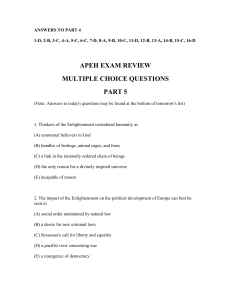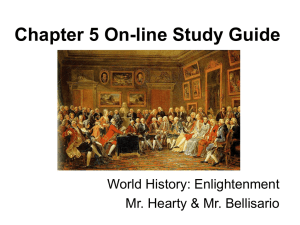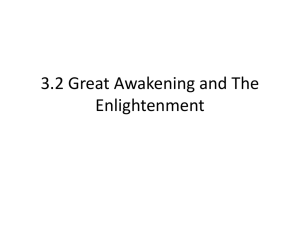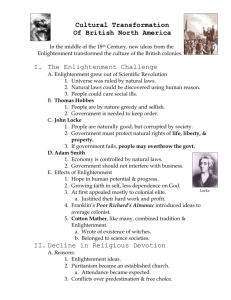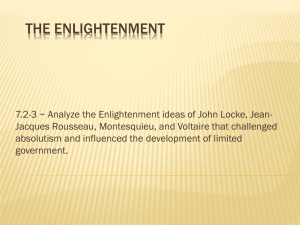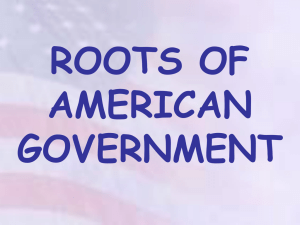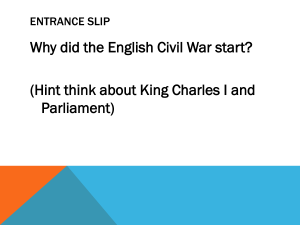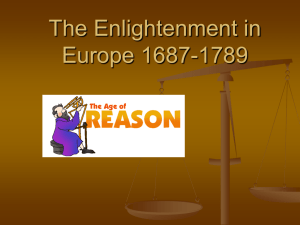Enlightenment
advertisement
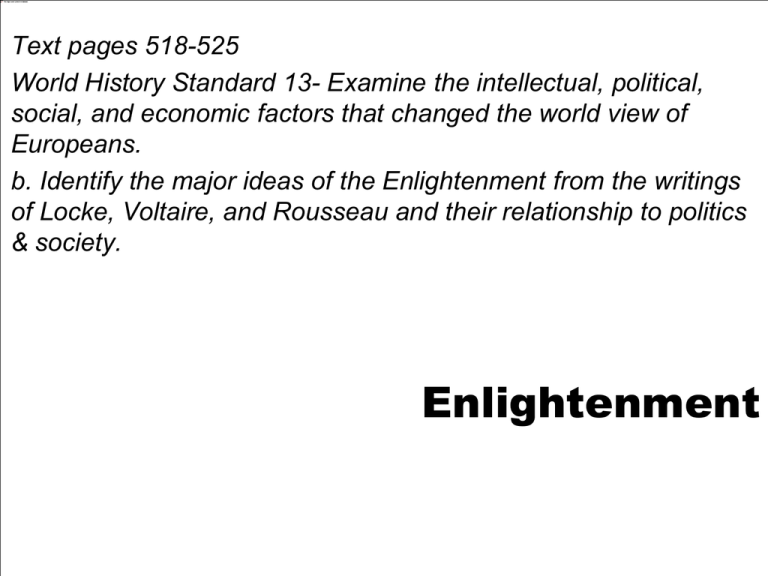
Text pages 518-525 World History Standard 13- Examine the intellectual, political, social, and economic factors that changed the world view of Europeans. b. Identify the major ideas of the Enlightenment from the writings of Locke, Voltaire, and Rousseau and their relationship to politics & society. Enlightenment Path to the Enlightenment • Enlightenment- 18th century philosophical movement of intellectuals who were greatly impressed with the achievements of the Scientific Revolution • They hoped to make life better by using the Scientific Method to understand all life. • Especially influenced by two 17th century Englishman- Isaac Newton and John Locke. Enlightenment • Ca. 1680 – 1800 • Evolved over time • Most leaders were French but recognize it began with the British • International movement John Locke • In 1690, Locke wrote Concerning Human Understanding, which argued that every man was born with a blank mind. • According to Locke if environments were changed & people were exposed to the right influences, then people could be changed & a new society created. John Locke Voltaire (1694 – 1778) • Greatest figure of the Enlightenment • Prosperous middle class Parisian family • Especially well known for his criticism of Christianity • In 1763, penned his Treatise on Toleration, in which he reminded governments that all men are brothers under god. • Championed deism, an 18th century religious philosophy based on reason and natural law Voltaire Jean Jacques Rousseau (1712- 1778) • Swiss; described as “appealing but neurotic” • Most famous philosopher of the later Enlightenment • Argued people had adopted laws & government in order to preserve their private property. In the process we become enslaved to the government. • Wrote The Social Contract in 1762 • Believed emotions & reason were important to human development. Rousseau Relationship of Enlightenment to Society • Greatest appeal with the aristocrats & upper class. • Growth of publishing & the reading public • Development of magazines • First newspapers were printed Impact of the Enlightenment • Believed in natural rights for all people. • These rights included: • Equality before the law • Freedom of religious worship • Freedom of speech • Freedom of press • Right to assemble, hold property, and pursue happiness • Believed government should be ran by enlightened rulers who obey laws & enforce them fairly • Declaration of Independence based on these ideas.

